No matter how well you follow your skincare routine, proper moisturization is always at the top of the priority list. Most makeup or skincare products you use, as well as sunlight and pollution, can damage your skin barrier.
This can cause your skin to become dry and flaky, making moisturization a must for your face.
This article will teach you how often to moisturize your face, what is the ‘right’ amount to use for your skin, and what kind of moisturizer is perfect for you.
Table of Contents:
- Part 1: How often should you moisturize your face?
- Part 2: Can You Put Lotion on Your Face?
- Part 3: How Much Moisturizer Should I Use?
- Part 4: Can You Over Moisturize Your Face?
Part 1: How often should you moisturize your face?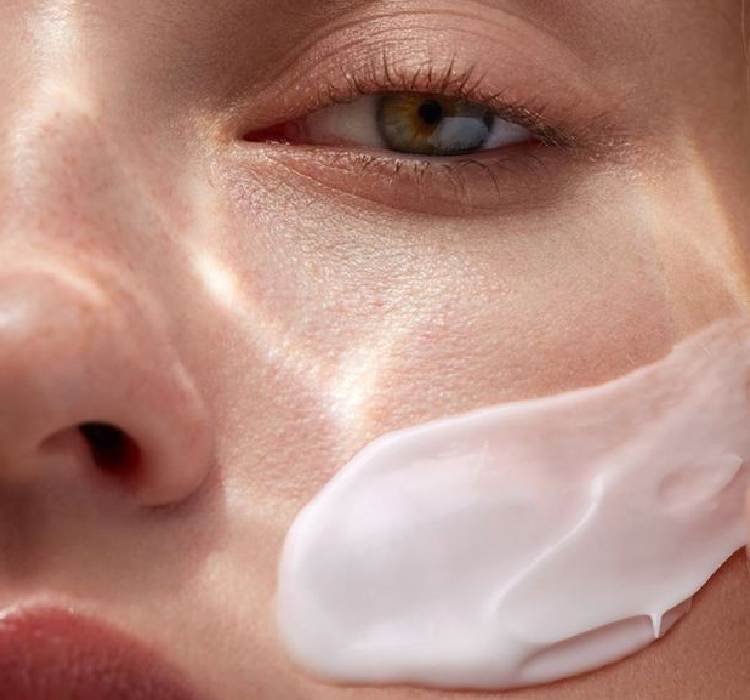
Proper moisturization is essential for everyone. However, the frequency of using a moisturizer daily can vary between people.
Daily moisturizing for most skin types
The skin of your face and neck are more sensitive to environmental changes than other parts of the body. The areas also tend to shed dead skin cells faster and thus, need enough moisture to heal and repair themselves. This helps the new skin cells to come up to the surface easily, making your skin feel younger.
Even if your skin isn’t on the dry side, you still must not skip regular moisturizing. This is because our skin usually overproduces oils and sebum to balance its moisturization levels. Proper moisturization also helps hide blemishes by giving your skin a healthy bright glow.
Dermatologists suggest that you should apply a good moisturizer at least twice daily – once in the morning and once at night – to make sure that your skin enjoys constant hydration throughout the day.
Adjusting frequency based on skin type
1. Dry skin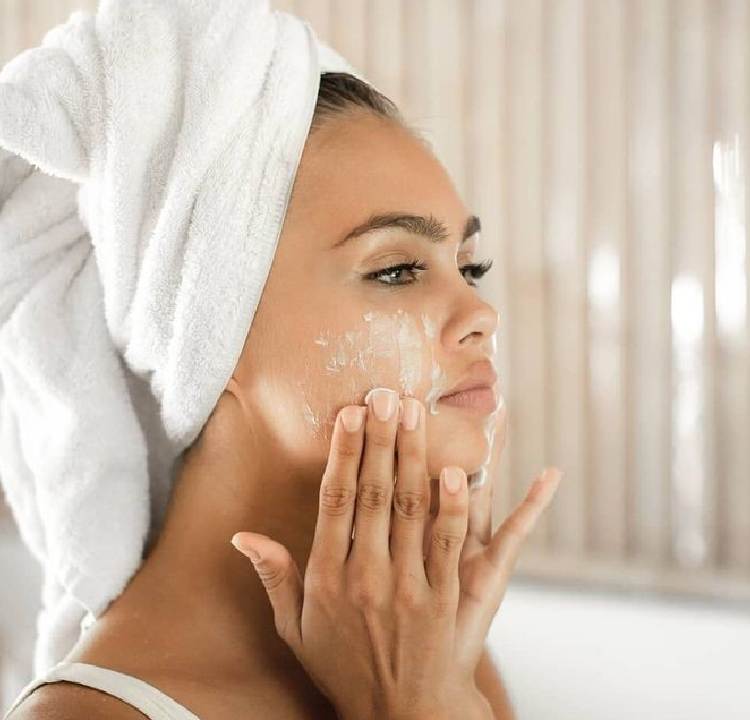
It is not wrong to say that dry skin needs the most moisturization, and that too around the clock. If you have dry skin, it is important to apply moisturizer multiple times a day, especially after you wash your face or when your skin feels dry. You can use a thick moisturizing cream with an oil or petroleum jelly base.
2. Oily or acne-prone skin
It is a common misconception that oily skin doesn’t need external moisturization. In truth, one of the main reasons that your skin produces oil is to tackle its dryness. For oily skin, you should use a lightweight gel-based face cream or lotion twice a day – in the morning and night – to help lock in the moisture needed by your facial skin.
3. Combination skin
Combination skins are usually easier to handle since they lie in the middle of both extremes. However, this doesn’t mean that this skin type doesn’t demand constant moisturization. You can go for any good moisturizer that isn’t too heavy and won’t clog your pores. Make sure to add moisturization to your morning and night skincare regime to keep its moisture level balanced all day.
Adapting to environmental conditions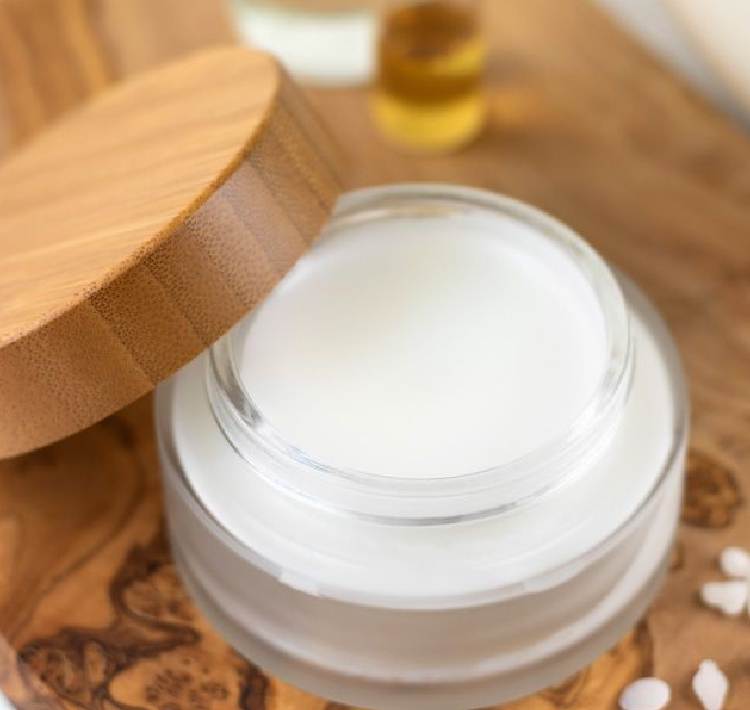
Regardless of what your skin type is, the weather plays a very important part in helping you determine how often should you moisturize your face.
1. Dry or cold climates
Cold and dry weather definitely takes a toll on your skin, making regular moisturizing even more vital than usual. Make sure to moisturize your skin whenever it feels dry or flaky, using your usual moisturizer (according you your skin type). Also remember that although lotions might feel like heavier products, they don’t do much for your face. This is because they have a higher water content with a very small amount of ingredients that are essential to preventing dryness of your facial skin.
2. Humid or hot climates
Humidity is often considered good for your skin. Yet there are limits to its benefits. Higher levels of humidity result in triggering more sweat, which can make your skin prone to breakouts and a darker complexion. Hotter weather also strips the hydration of your skin, making it even dryer than before. All of this makes it important to use a light moisturizer daily. You can go for a gel-based non-comedogenic product and apply it regularly, especially at night to help your skin recover during your sleep.
Considering lifestyle factors
Your lifestyle might have a major influence on your choice of moisturizer, as well as the times you need to use it every day.
1. Sun exposure and sunscreen usage
If you tend to go out every day, a good moisturizing sunscreen is a major essential for you. However, most sun-protection products don’t provide enough hydration to your skin, making it important to use a proper moisturizer as well. For maximum protection from the sun, it is recommended to first apply sunscreen, followed by a lightweight moisturizer, and then makeup. It is better to let the sunscreen dry for a few minutes before layering it with your moisturizer.
2. Makeup wearers and moisturizing
Applying a good moisturizer before your makeup not only helps build a smooth base for the foundation to stay on but also hydrates your skin and makes your face look brighter. Most makeup professionals recommend using moisturizer under concealer or makeup to avoid it cracking or looking cakey. There are several products, such as BB and CC creams, that you can use only for this purpose, or even mix your moisturizing cream with your foundation as a DIY solution! Still looking for the best moisturizer? Let this guide help you!
Part 2: Can You Put Lotion on Your Face?
The main difference between the skin of your face and other body parts is its “thickness”. The skin of your face is thinner and hence, more sensitive. Hence, it is clear that the products that you would be using for your face would be different than what you use for your body.
Body lotions are formulated using agents that help firm and soothe thicker skin, focusing on issues like cellulite. On the other hand, face products are made to address problems like oiliness, wrinkles, dark spots, and fine lines.
Body lotions and creams also tend to be heavier than face creams. They include thick emollients, such as oil and butter, that aim to protect and hydrate your body’s skin. These, however, are too heavy for your facial skin. Moreover, these lotions also usually contain strong fragrances that could irritate your face’s skin, especially if it is dry or sensitive in nature.
Part 3: How Much Moisturizer Should I Use?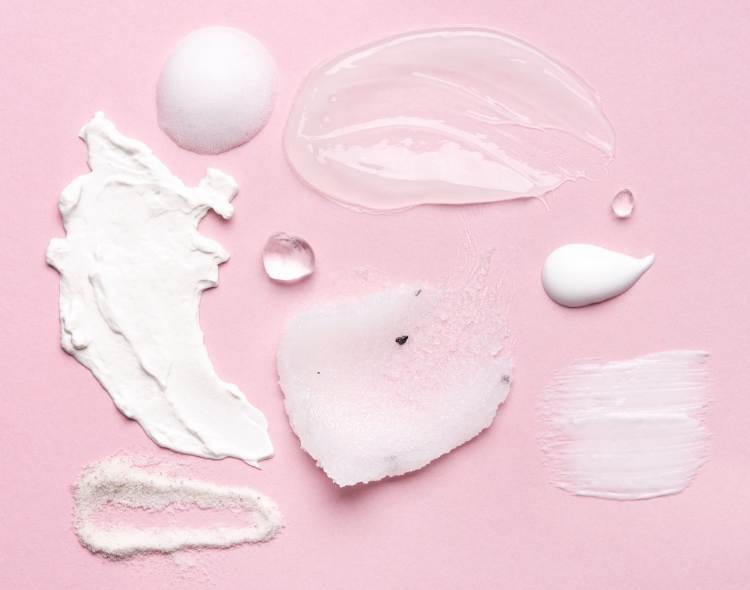
People usually believe that slathering a large amount of any skin product would help give better and faster results. Nevertheless, the truth is actually on the contrary. There is a limit to which something can work and increasing its amount or dose will not increase its efficiency.
As with everything else, it is important to keep a balance when using a moisturizer. Using too little of the product won’t be sufficient to hydrate your skin while using excessive amounts can clog your pores and weaken your skin barrier.
In general, a nickel-sized dollop is enough to properly moisturize your whole face. In case your skin is dry, you can start from this amount and add on more if you feel that your skin is still parched.
Tips for proper application
Moisturizing your face doesn’t mean you can smear any cream or lotion on your skin. A main part of this regime includes finding what suits you the best and would provide the results you truly want. If you don’t do it correctly, you might not be getting any benefits of moisturizer at all.
To ensure that your face is properly moisturized, wash it first with a gentle cleanser. Then, while it is still damp, apply small dots of moisturizer and gently pat it all over your face. Wet skin helps lock in moisture while patting (and not rubbing) aids in better absorption of the product.
Part 4: Can You Over Moisturize Your Face?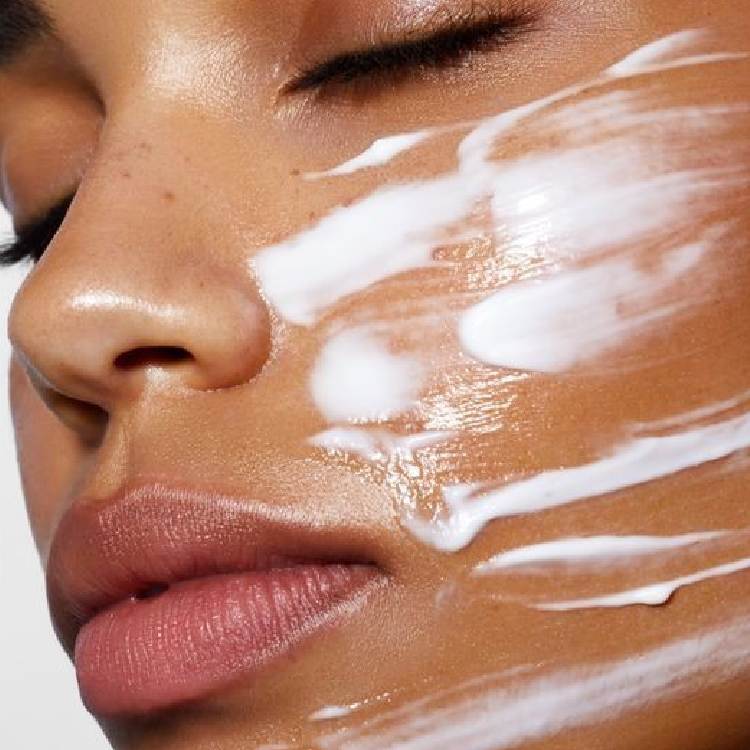
Face moisturizing products already have concentrated formulas. Thus, using more than usual will not give you better results. Worse, it can cause damage rather than benefit you.
The main rule of thumb is to ensure your product has absorbed fully into your skin and doesn’t feel sticky anymore. Some issues caused by over-moisturizing can include clogged pores, blackheads, excess oiliness, and bumpy skin.
Using too much moisturizer can also make your skin depend on external moisturization altogether, discouraging it from moisturizing on its own. This is because over-moisturizing makes your skin believe that it has enough amount of hydration and lipids, so it slows down their production. This could become a long-lasting habit for your skin, ultimately making it incapable of producing any moisture itself.
Conclusion
Moisturizing your face can do wonders for your skin, helping it become healthier, plumper, and brighter. There isn’t a one-size-fits-all rule for how often you should moisturize your face. The type and amount of product you need to use to get the best results depends on several factors, such as your skin type, the climate where you live, and your lifestyle.
Regardless, moisturization is an essential routine that must not be skipped and be followed at least twice daily. To improve the results, remember to keep yourself hydrated by drinking lots of water, avoiding hot showers, and using sunscreen religiously.
Follow this guide to learn the best moisturizers to use after a laser or IPL treatment

 By myulikeadmin
By myulikeadmin



